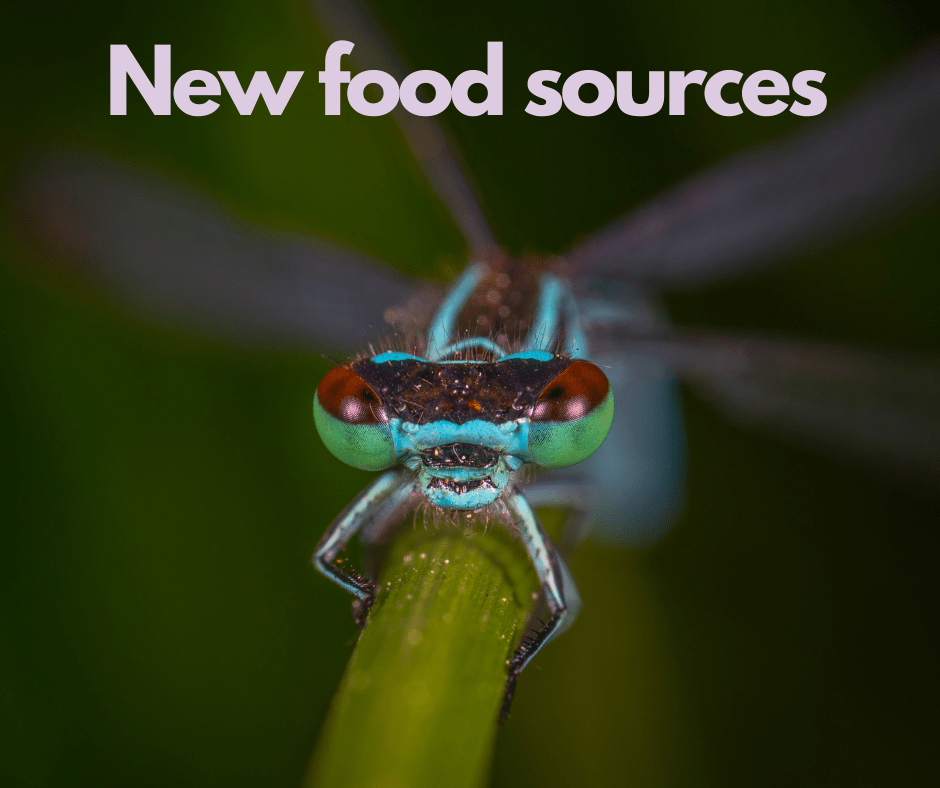
Rising food prices (especially meat), growing population and environmental concerns are causing many people to ask the question:
‘What alternative food sources are there available to us?’ We’ll discuss some of them, and ask if you would consider eating them, in this episode.
Email from Pilar from France
Dealing with Stress – https://inglespodcast.com/339
Hi,
I just listened to your last podcast about stress and I thought about one thing we say: Si tiene solución, porqué te preocupas? , y si no tiene solución, porqué te preocupas?
I don’t know if you say something similar in English.
“Don’t worry about things you have no control over.”
The Serenity Prayer (Serenity – the state of being calm, peaceful, and untroubled.)
“God, grant me the serenity to accept the things I cannot change,
courage to change the things I can, and wisdom to know the difference.”
(written by Reinhold Niebuhr, an American Theologian)
Voice message from Johanna from Ecuador
New idioms – not the same as languages
on the other hand – Also, Additionally, Another thing is…, Anyway…
New food sources
plant-based food
New Protein sources
Vegans and Vegetarians: https://inglespodcast.com/274
Insects (mini-livestock) could become a staple of our diet. Would you eat them?
Caterpillars (oruga) and locusts (langosta) and grasshoppers (saltamontes) are popular in Africa, wasps (avispa) are a delicacy in Japan, crickets (grillo) are eaten in Thailand. What alternatives are there to meat?
There are an estimated 1,400 species of insects that are edible. Around 2 billion people are already eating insects on a daily basis.
Would you eat an energy bar, or another snack, that contained edible worms (gusanos) or other bugs?
Edible insect recipes: https://www.eatcrickster.com/recipes
Meat is being grown in laboratories. It’s grown from animal stem cells and can be made into different shapes. The first lab-grown burger cost $325,000. They’ll soon be around $10 each.
Plant-based meat using heme from the roots of soy plants
Seaweed (algas) has been a part of the diet in Asia for a long time. It grows really quickly and can be used to replace salt in bread and processed food. It contains essential amino acids and other nutrients.
Spirulina, though one of the oldest life forms on earth, has only recently become extensively used as a dietary supplement. It’s microalgae full of protein, vitamins, minerals and low in sugar and all the bad stuff.
Kamut wheat is slowly increasing in popularity. The word is the ancient Egyptian word for “wheat”. Actually, it’s a trademark brand name that was patented in 1990 in the USA. Really it’s a type of the ancient Khorasan wheat, which many people find easier to digest than other types of wheat and has more nutritional benefits.
Other old sources of food that have only recently been rediscovered by a mass-market and have a very promising future include the grains spelt wheat, chia seeds and amaranth (amaranto).
3D printed food using a special 3D printer and ingredients.
Discussion – GMOs
GMOs – genetically modified organisms – a blessing or a curse?
Since when did humans know better than Mother Nature what was best for the planet? We don’t have a great track record when we interfere with the balance of things too much, do we?
Are GM crops different from non-GM crops?
One thing is GM crops, what about GM animals, which, by the way, already exist? e.g so-called frankenfish.
Is it a good or bad thing that in any sector of the economy 4 companies own 60% of the entire world market? That’s the case for GM seeds. (Incidentally, for those wondering if lack of market competition might improve in the future, it used to be 6 companies, but mergers in 2019 reduced that number to 4!)
Are GMOs Good or Bad? Genetic Engineering & Our Food:
…and now that you’ve listened to us, we want to listen to you. go and record a sentence or two and send us a voice message using…..https://www.speakpipe.com/inglespodcast
Send us an email with a comment or question to [email protected] or [email protected].
Visit our online store: https://store.mansioningles.net/
Voice message from Vanessa from Venezuela living in Ecuador
you “hit the nail on the head”
Thank you to all of you who are helping us by supporting this podcast. You can see a list of all our Patreon supporters at Patreon.com/inglespodcast
Join our Patreon program for as little as $1 per month (+VAT) and you get instant access to recent transcriptions. https://www.patreon.com/inglespodcast
Welcome to our new Patreon supporters who have joined us this month:
Victor Cristobal
Juanlu Anaya
Maria Jose Ruiz Guzman
Miguel Gonzalez
Vero (Veronica Rodriguez)
On next week’s episode: Brexit
The music in this podcast is by Pitx. The track is called ‘See You Later’




